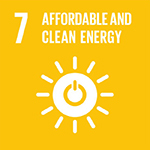
Biobased Testing Standard
ASTM International’s plastics committee (D20) has revised an important standard that supports using radiocarbon analysis to determine the biobased content of solid, liquid and gaseous samples. The revision includes an update of the atmospheric adjustment factor (REF) value that is used in product analysis for biobased and biogenic carbon content.
The revised standard (D6866) is used to report the percentage of biobased or biogenic carbon content of products, raw materials, chemicals, or other content that are in a liquid, solid, or gas form.
“Biobased and biogenic carbon is the percentage of carbon in a sample that is derived from biomass, as opposed to non-circular and/or fossil carbon,” says member Ron Hatfield, president/CEO, R.E. Hatfield. “This analysis is used to show the amount of the natural, renewable resources that are used in a product in relation to the amount of fossil carbon contained.”
The standard is used by manufacturers, research and development laboratories, regulatory bodies, consumers, suppliers, and exchange traders.
Hatfield notes that the standard is used by the United States Department of Agriculture to certify products based on their biobased content. It is also used for the following purposes:
- To certify the biogenic content of carbon dioxide released from waste-to-energy, cement plant, and other stack emissions, under the U.S. Environmental Protection Agency and other regulatory agencies worldwide.
- To certify carbon credits (RINs), carbon sequestration, renewable energy such as biodiesel, hydrocarbon gases and chemicals generated during petrochemical co-processing and refining processes.
- To support testing requirements of various renewable fuel standards throughout the world.
To purchase standards, contact ASTM International customer relations (tel +1.877.909.ASTM).
U.N. Sustainable Development Goals Supported:

 SN Home
SN Home Archive
Archive Advertisers
Advertisers Masthead
Masthead RateCard
RateCard Subscribe
Subscribe Email Editor
Email Editor